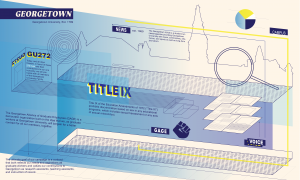In light of decreased revenue from riders and Congressional gridlock, D.C.’s metro system may be forced into service cuts at the end of this year.
Washington Metropolitan Area Transit Authority (WMATA) authorities have stated that funding from a previous coronavirus relief bill will run out at the end of this year, and without additional federal support, the transit agency may need to make changes to its budget for the 2021 fiscal year. If WMATA does not receive additional federal funding, the agency will need to make approximately $200 million worth of cuts in order to balance its budget for the 2021 fiscal year. According to WMATA’s outline of COVID-19 budget impacts, the agency would need to enact service changes and begin layoffs in December if its funding does not increase.
Due to a decrease in ridership associated with the COVID-19 pandemic, WMATA depends on funding from the coronavirus relief bill in order to sustain its current service offerings.
News of these proposed cuts in service comes shortly after WMATA has nearly returned to operating at pre-pandemic service levels. Since Sept. 8, all metro stations have been fully operational for the first time since March, when station closures were put in place to help prevent the spread of the COVID-19 pandemic and to conduct a station platform reconstruction project.
The proposed changes for 2021 include increasing headways (the time in between trains on any given line), increasing turnbacks, meaning trains on certain lines will only run on a specific part of the line rather than the full length of the route, and decreasing Metrorail service hours.
Specifically, these proposed service changes include increasing weekday headways on the Blue, Orange, Silver, Yellow, and Green lines from 10 minutes to 12 minutes, and weekday headways on the Red Line from five to six minutes. Additionally, WMATA has suggested implementing turnbacks on the Red Line, so half of Red Line trips only operate between Grosvenor-Strathmore and Silver Spring stations, and turnbacks on the yellow line so all trains only run between Huntington and Mt. Vernon Square. Finally, Metrorail would decrease its hours and close at 9 p.m. on Sunday through Thursday instead of the current 11 p.m. The decrease in hours could be especially problematic for those who work low-wage jobs into the evening and rely on public transport to get home.
In response to the proposed turnbacks on the Red Line, Second Vice-Chair of the WMATA board Michael Goldman expressed concern about the impact on commuters from neighboring Maryland, saying at a Sept. 18 Board of Directors meeting that “proposed reinstatement of Red Line turnbacks are still of concern for myself and for riders in Montgomery County.” He also stressed that he will review ridership data to see if the proposed service changes reflect demand.
However, board member Matt Letourneau emphasized the proposed turnbacks would only affect half of Red Line trips, and that riders utilizing stations beyond Grosvenor-Strathmore and Silver Spring will still have access to train service every 12 minutes. Additionally, both Letourneau and WMATA Board Chair Paul Smedberg emphasized any decisions about service changes would be made with careful consideration of ridership data.
Despite this, Goldman indicated he would vote against the proposed cuts in the 2021 budget. “Savings resulting from the turnbacks is minuscule,” he said. “Just $2.8 million maximum in an operating budget of 2 billion dollars.”
While most of the board’s discussion of the proposed service changes focused on the potential effects on the rail system, the newly proposed budget will most significantly affect bus riders. Some of the proposed changes to the bus system include suspension of all trips starting after 12 a.m., reduced weekend service on many bus lines, and discontinuation of some routes. Metrobus initially planned to expand service in 2021, but this will be impossible without new revenue.
The board recently opened up the opportunity for public comment on the budget proposal, which will continue until 9 a.m. on Monday, October 19. In the meantime, both the board and riders alike can only do what Letourneau suggested: “hope for an end to the stalemate in Congress over potential aid for Metro and for transit.”




